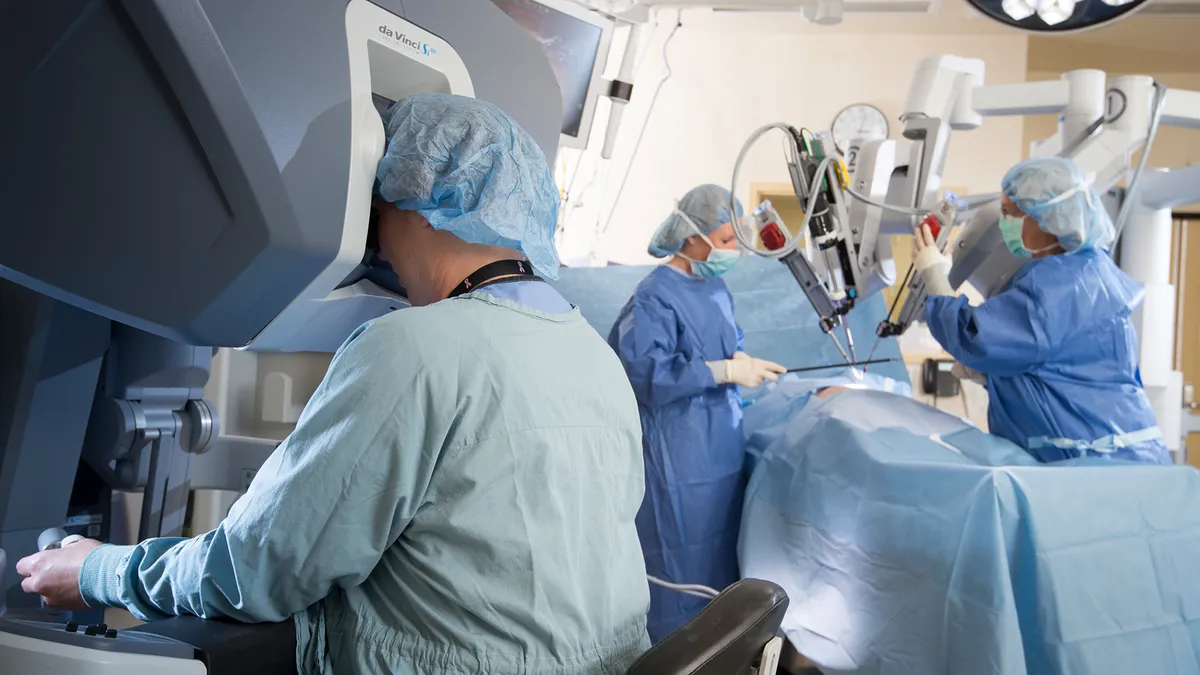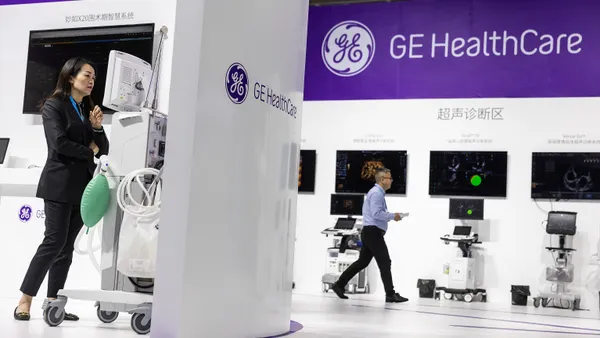Dive Brief:
- More medical device companies are betting on surgical robotics for their next big innovation, hoping the technology will solve challenges that still exist with minimally invasive surgical techniques, according to a report from GlobalData.
- Companies developing surgical robots raised a total of $296 million in capital between July 2017 and July 2018, the report said.
- The analytics company predicts the surgical robotics market will become more crowded as both large players and small startups pursue robotics projects, expanding into a wider range of surgical procedures.
Dive Insight:
Intuitive Surgical has had a highly successful run as the sole player in the robotic surgery market since its first da Vinci system was approved in 2000. But competition has arrived.
Tiny startup TransEnterix entered the U.S. market in October when it won FDA approval for its Senhance system. Medical device heavyweights including Medtronic, Johnson & Johnson, and Stryker have either partnered with or acquired surgical robotics companies to help accelerate robotic innovation.
Another startup, Auris Health, led by Intuitive founder Frederic Moll, is generating excitement with its Monarch platform, which aims to tackle lung cancer through diagnostic and bronchoscopic procedures. In May, Auris announced a collaboration with J&J unit NeuWave Medical.
Over the past year, a number of companies with their sights on the robotic surgery market, including Titan Medical, Medrobotics and Accuray, have raised capital through public offerings or private share placements, according to GlobalData. Large deals have involved CMR Surgical, Corindus Vascular Robotics and Mazor Robotics.
Medtronic has a stake in Mazor, which is focused on spine surgery. The company in September completed the third tranche of a private share placement totaling $72 million.
"While robotic-assisted surgery aims to provide increased precision and control to a complicated procedure, they are generally very expensive to procure," said GlobalData analyst Jennifer Ryan in a statement. "The majority of companies at the forefront of surgical robotics systems are startups, which are reliant on funding and capital raisings for continued advancement."
GlobalData predicts larger companies will accelerate investment in surgical robotics through acquisitions and partnerships. As the devices improve patient outcomes and reduce complications from procedures, more patients will become eligible for treatment via robotic surgery.










